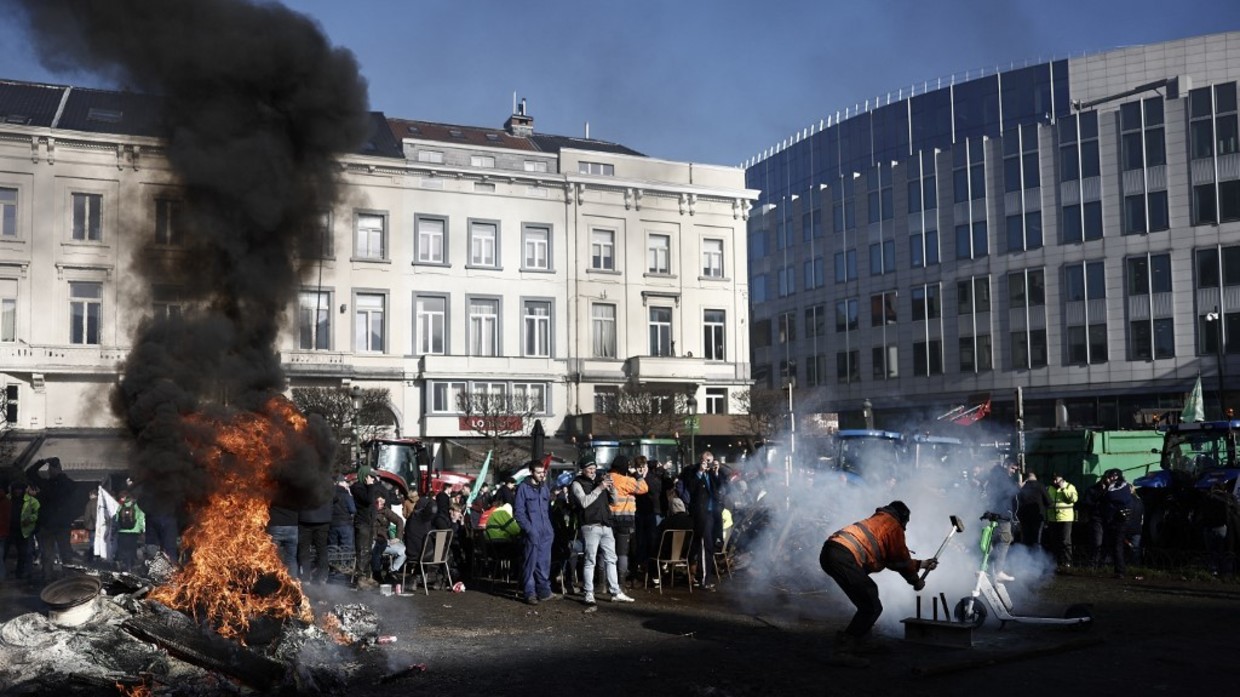A crowd of furious farmers picketed the EU Parliament building in Brussels on Thursday to protest environmental regulations and the threat to their livelihoods posed by cheap Ukrainian imports. The protesters hurled stones, eggs, and abuse at the bureaucrats behind police lines.
Convoys of tractors began streaming into Brussels on Wednesday night, and by Thursday morning the streets of the Belgian capital were blockaded by around 1,300 vehicles, according to a police estimate.
The farmers assembled in front of the European Parliament building on Luxembourg Square where they burned pallets and piles of manure. The crowd lobbed eggs, stones, fireworks, and flaming projectiles at the legislature, while similar scenes took place outside the nearby headquarters of the European Council.
Riot police used water cannons to extinguish the fires and push back stone-throwing protesters. As of Thursday afternoon, no arrests or injuries had been reported.
The protest was a culmination of months of demonstrations in different EU countries. Farmers in Germany have blocked city streets since December, demanding that Chancellor Olaf Scholz abandon his plans to scrap a diesel subsidy, while those in France have also protested rising energy costs. In Eastern Europe, farmers have been demonstrating against an EU policy allowing tariff-free imports of cheap Ukrainian grain, which significantly undercuts local produce.
Across the bloc, decisions made in Brussels are a common source of grievance. Farmers have condemned the EU’s planned Mercosur trade deal, which would allow the tariff-free importation of produce from Latin America, thereby forcing EU farmers to sell at a lower price. The farmers have also demanded that the EU roll back regulations, including a requirement that they leave 4% of their land fallow and reduce livestock numbers to lower nitrogen emissions.
A short walk from the protest, the European Council met on Thursday morning, but agricultural issues were not on the agenda. Instead, the council agreed on a €50 billion package of economic aid to Ukraine. However, Belgian Prime Minister Alexander De Croo told reporters that the farmers’ concerns would be discussed, stating that EU leaders “need to make sure that [the farmers] can get the right price for the high-quality products that they provide.”
With European Parliament elections coming up in June, the European Commission announced on Wednesday that it would grant the farmers some limited concessions, including a one-year exemption from the fallow land rule for some producers, and a promise to cap imports of Ukrainian poultry, eggs, and sugar. However, the commission said that it would extend the tariff-free regime for all other Ukrainian produce until June 2025.

